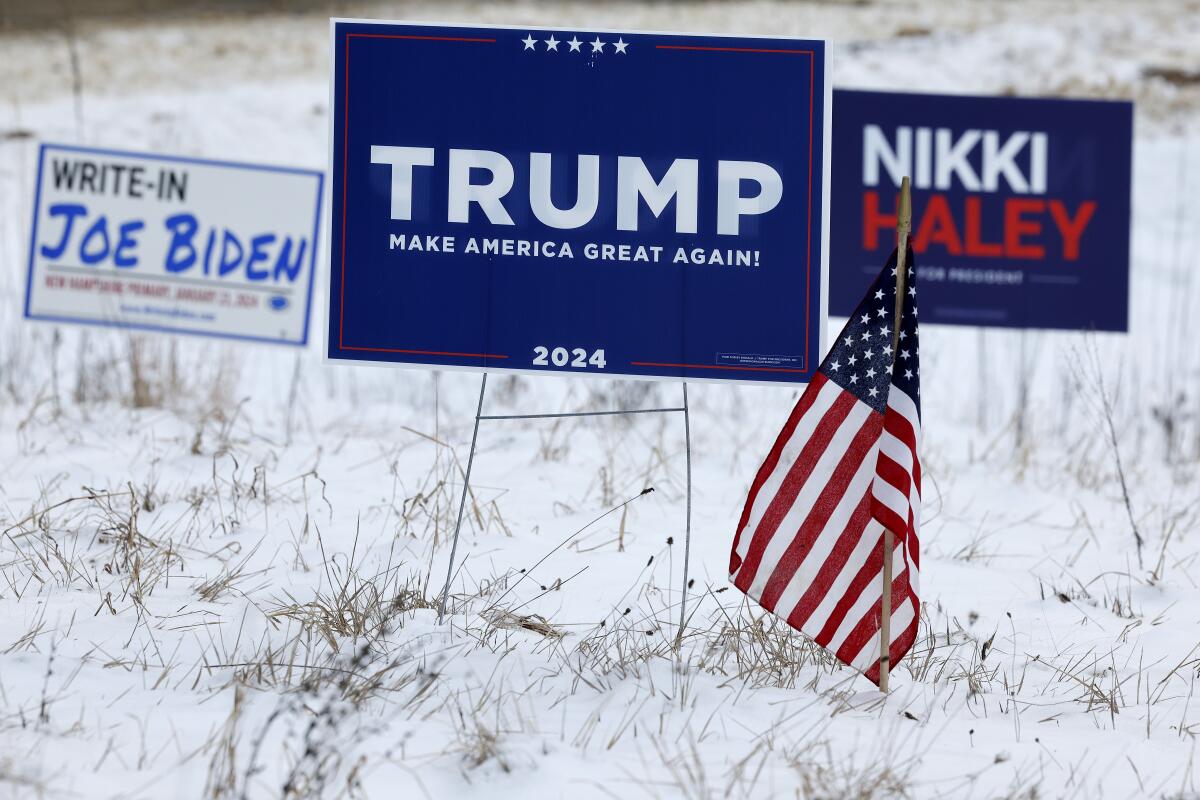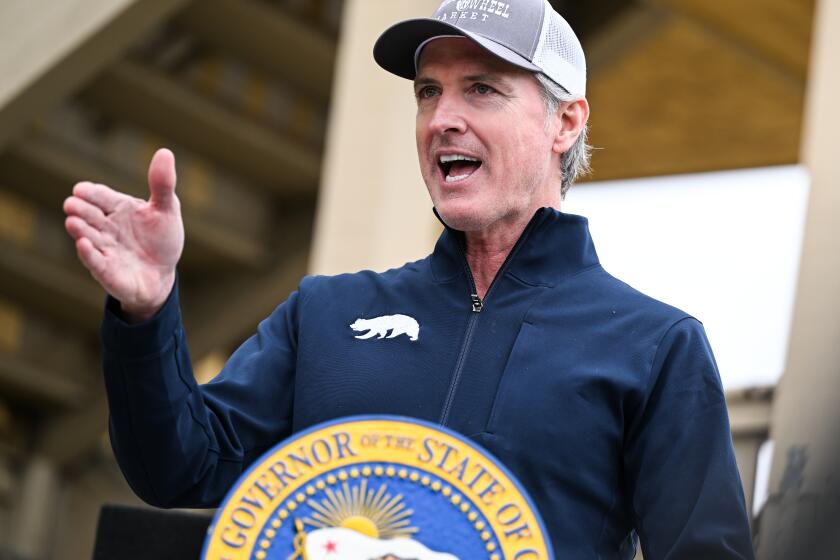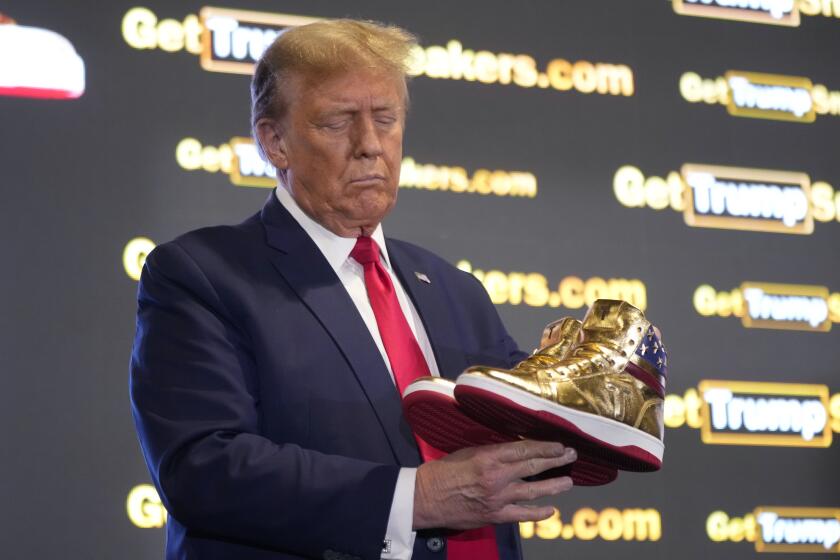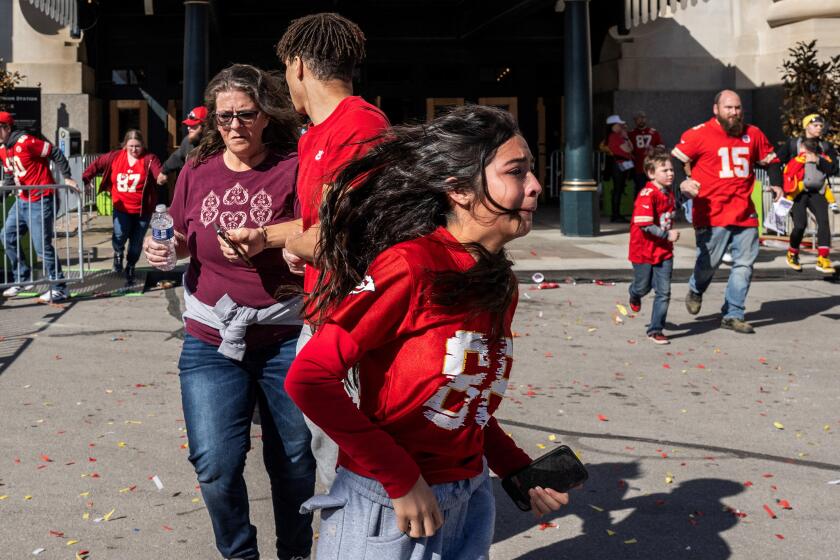Column: Biden and Trump? What a waste of the Super Tuesday primaries

We’re told Tuesday is super, but it doesn’t feel that way, does it?
With 16 states and one territory holding primaries all at once, there should have been drama surrounding the night. But that would have taken bravery. Party leaders chose safety in the familiar instead.
Opinion Columnist
LZ Granderson
LZ Granderson writes about culture, politics, sports and navigating life in America.
For years, polls have consistently shown that America does not want a rematch of Joe Biden versus Donald Trump. Yet the reason the primaries don’t feel inspiring is that we’ve just kept heading in that direction anyway.
No Democrat with gravitas wanted to challenge Biden in the primary. Very few Republicans with influence wanted to risk it all against Trump; only one plausible contender, Nikki Haley, has stuck it out this far. And so instead of a Super Tuesday that hinges on policy questions, rapport with voters or anything else that politics should be about, the dominant conversations this primary season are about indictments and age.
In other words: It’s about them.
Someone needs to defend the Constitution, and the California governor is stepping up.
We needed Super Tuesday to be about us.
California was hit with a blizzard that knocked power out for thousands. Texas is in the middle of the largest wildfire in the state’s history. Yet instead of climate change policies, we’re discussing whether Trump could kill his political rivals without punishment. If that sounds like something Russian dictator Vladimir Putin would do, then you understand why this election is so important. And yet the biggest day of the primary season feels more like the day after Christmas.
We know too much about Trump to pretend he might manage the economy. He ruined businesses, tanked the budget and has now been exposed as a fraud.
The 22nd Amendment — which limits a president to two terms — wasn’t ratified until 1951. That meant George Washington wasn’t required to leave the presidency. After the Revolutionary War and the Constitution was established, many hoped he would stay indefinitely. Washington chose not to, for the good of the country. There was never a chance of Trump doing something for the good of the country: Although he is facing jail, he has a well established history of putting his needs above the country, so it’s no surprise he wants to run for president again.
However, at one point I did have hope that President Biden — who said the Charlottesville white supremacist rally in 2017 inspired him to run — would have gone the Washington route and announced he would not run again. That would have been one way to defend America. To help the country regain its footing.
Trump and others on the right will ensure slaughter continues at parades, churches and schools. GOP voters and gun owners want gun control. Will it happen?
Imagine if he had stepped aside so the next generation of leaders could flourish and jostle through a competitive primary season. Instead of Super Tuesday 2024 being defined by questions surrounding Biden’s health and ability to serve out his term, it could have been one in which voters had a chance to decide the direction of the party. That appears to have been kicked down the road to 2028. That’s a long time to wait for the future.
Super Tuesday became a thing in 1988 in part because Walter Mondale had gotten trounced by Ronald Reagan in 1984 and Democrats in the South wanted a stronger say in the primary, to balance out the influence of the earliest standalone contests with a cluster of votes on the same day.
Democratic Party leaders were not immediately swayed; they put up Massachusetts’ own Michael Dukakis in 1988, who proceeded to get thumped by George H.W. Bush.
What the back-to-back shellacking represented was growing pains. Finally, in 1992, Super Tuesday delivered on its promise, when Bill Clinton emerged victorious — after getting off to a rough start in Iowa and New Hampshire — by learning how to craft a message of coalition building. That’s how he won support of Black voters and the LGBTQ+ community. That’s how he won over the white working class as well. The same for Barack Obama, whose primary with Hillary Clinton produced vigorous debates about foreign and domestic policy leading into their Super Tuesday matchup.
Voters in Democratic primaries had a real say that year about what they wanted the nation to look like. Tight control by timid parties saps all the democracy out of the democratic process.
Washington cautioned the nation about political parties because he foresaw exactly what we have become.
Now too many of us think of the White House as some kind of trophy to be claimed by one of the two teams every four years. We are spoon fed by the parties, really. Name recognition has more importance than it should, competency less than it ought.
Partisanship has driven us to think in terms of payback and revenge. As a result, instead of this November being a chance for a fresh start, we’re just hoping democracy survives. The challenges we face as a nation are many, and yet here we are spending Super Tuesday talking about how energetic Biden is and whether Trump’s name should even be on the ballot.
We had a chance to make this day about us.
Maybe next time.
More to Read
A cure for the common opinion
Get thought-provoking perspectives with our weekly newsletter.
You may occasionally receive promotional content from the Los Angeles Times.















